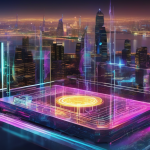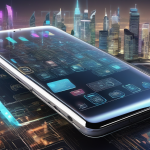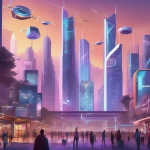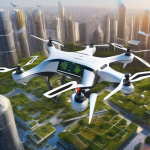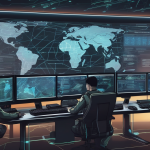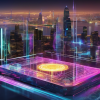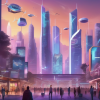AI’s Impact on Pop Culture: From Memes to Music
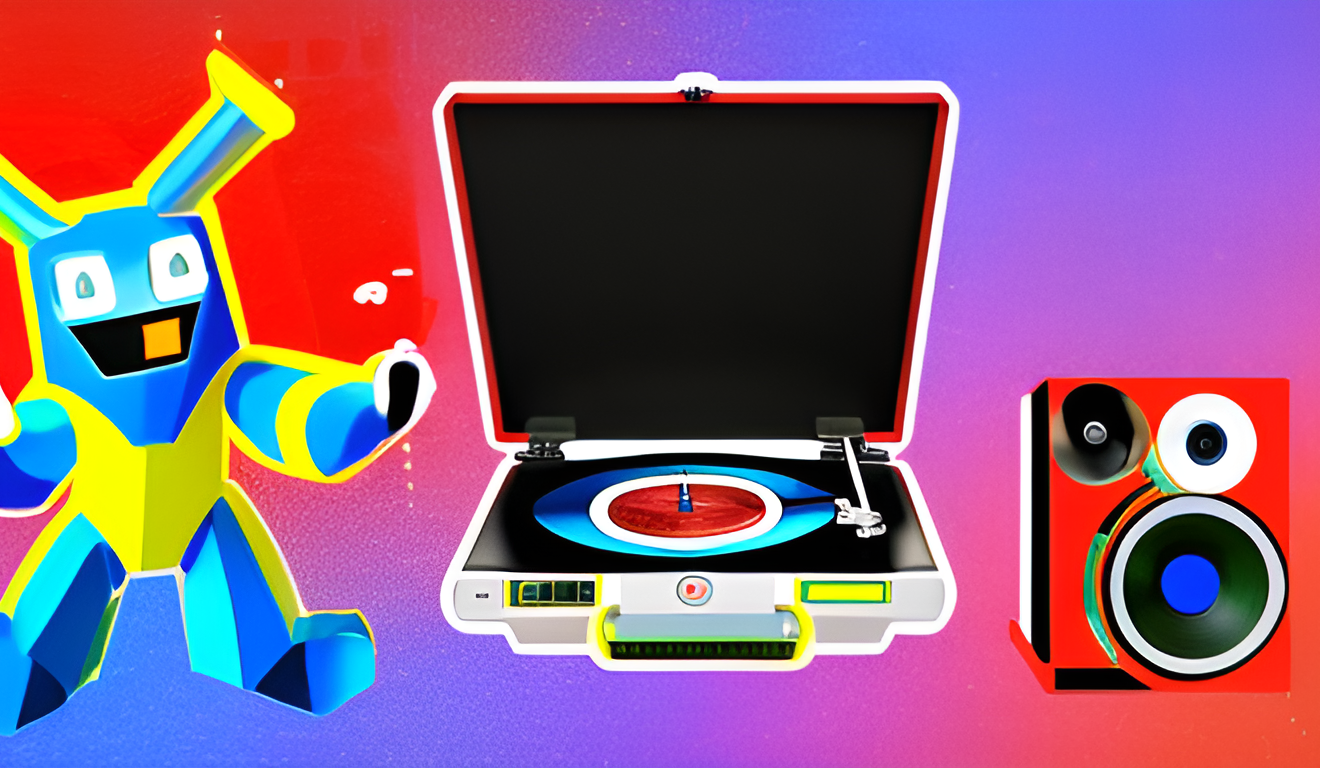
Artificial intelligence is not just a buzzword; it’s a transformative force reshaping our world, especially in the realm of pop culture. From the hilarious memes that flood our social media feeds to the catchy tunes we can’t help but sing along to, AI is at the heart of this evolution. Imagine a world where algorithms not only understand humor but also create it, or where machines compose music that resonates with our emotions. This is not science fiction—it’s happening right now!
As we dive deeper into this fascinating intersection of technology and creativity, we see that AI is not just a tool but a collaborator. It’s like having a creative partner who never runs out of ideas. Think about how memes have become a vital part of online communication. They encapsulate humor and social commentary in a way that’s easily digestible. AI algorithms analyze trends, cultural references, and user engagement to generate memes that are not only funny but also relevant. The result? Viral content that spreads like wildfire across the internet.
But AI’s influence doesn’t stop at memes. In the music industry, for instance, artists are leveraging AI to push the boundaries of sound and creativity. With advanced algorithms, musicians can create, produce, and even perform music in ways that were previously unimaginable. Imagine an AI that helps you write a song—offering suggestions for lyrics, melodies, and even harmonies. It’s like having a co-writer who’s always there to inspire you!
Moreover, AI is revolutionizing how we discover music. Streaming services use sophisticated algorithms to analyze our listening habits, creating personalized playlists that feel tailor-made for us. This not only enhances our listening experience but also opens up avenues for lesser-known artists to reach wider audiences. As we look ahead, it’s clear that AI will continue to shape the future of pop culture, presenting both exciting opportunities and intriguing challenges.
The Rise of AI-Generated Memes
Memes have become the heartbeat of online culture, spreading like wildfire across social media platforms. But did you ever wonder how these hilarious snippets of humor are created? Enter artificial intelligence, a game-changer in the world of meme generation. AI algorithms are now capable of analyzing trends, understanding humor, and even crafting memes that resonate with audiences on a massive scale.
Imagine a world where a computer can predict what makes you laugh. That’s the power of AI in meme creation! By sifting through countless images and text combinations, AI can generate content that taps into current events or cultural phenomena. This not only keeps memes fresh but also ensures they hit the mark with the audience. The result? Viral content that spreads faster than you can say “internet sensation.”
One fascinating aspect of AI-generated memes is their ability to adapt. For instance, AI can learn from user interactions, identifying which memes are shared the most or which ones fall flat. This feedback loop allows algorithms to refine their creations, making them increasingly relevant and entertaining. Here are a few ways AI is shaking up the meme landscape:
- Trend Analysis: AI can monitor social media in real-time to spot emerging trends and create memes that align with them.
- Image Recognition: Advanced algorithms can analyze images to produce humorous captions that match the visual context.
- Personalization: AI can tailor memes based on user preferences, ensuring that the content resonates on an individual level.
As we continue to embrace technology, the line between human creativity and AI-generated content blurs. The rise of AI-generated memes not only reflects our collective humor but also raises questions about authenticity and originality. Are these memes truly creations of art, or are they just products of sophisticated algorithms? Whatever the answer, one thing is clear: AI is here to stay, and it’s reshaping the way we experience pop culture!
AI in Music Production
Artificial intelligence is truly revolutionizing the music industry, and it’s exciting to see how technology is reshaping the way artists create and produce music. Imagine a world where algorithms can help you not only craft a catchy melody but also fine-tune every note to perfection. Sounds futuristic, right? Well, it’s happening now!
AI tools are becoming essential in the music production process, enabling artists to explore new creative avenues. For instance, AI can analyze vast datasets of existing songs to identify trends and patterns, which can inspire musicians to experiment with different styles. This is like having a virtual collaborator who never runs out of ideas!
One of the most fascinating aspects of AI in music production is its ability to assist in songwriting. Musicians can use AI algorithms to generate lyrics or even entire compositions. These tools can suggest rhymes, themes, and chord progressions, making the songwriting process smoother and more efficient. However, this raises an intriguing question: Who truly owns the music created with AI’s help? Is it the artist, the programmer, or the AI itself?
Moreover, collaborations between human artists and AI are producing some truly unique sounds. For example, renowned musicians are teaming up with AI to create tracks that blend human emotion with machine precision. This partnership is pushing the boundaries of what we consider music and opening doors to genres we never thought possible.
Additionally, AI-driven music recommendations are enhancing the listening experience for millions. Streaming platforms use sophisticated algorithms to analyze user preferences and suggest songs tailored to individual tastes. This personalization not only keeps listeners engaged but also helps them discover new artists and genres they might have otherwise overlooked.
In summary, AI is not just a tool for music production; it’s a game-changer that is reshaping the entire landscape of the industry. As we continue to embrace these technological advancements, the future of music looks incredibly promising. Who knows what stunning sounds and innovative genres will emerge next?
The Role of AI in Songwriting
Imagine sitting in a cozy room, strumming your guitar, and suddenly, a brilliant melody pops into your head. But what if that melody was not entirely yours? Enter artificial intelligence, a game changer in the world of songwriting. AI tools are increasingly stepping into the creative process, offering musicians a fresh perspective and new ideas that can spark inspiration. With the ability to analyze vast amounts of data, AI can assist in generating lyrics and melodies that resonate with audiences in ways we never thought possible.
These AI songwriting assistants work by learning from existing music, understanding patterns, and even mimicking styles. This raises an intriguing question: Are we witnessing the birth of a new kind of collaboration between humans and machines? As artists tap into these technologies, they find themselves exploring uncharted territories of creativity. For instance, an artist might input a few lines of lyrics, and the AI can suggest a range of melodies that complement those words. It’s like having a creative partner who never runs out of ideas!
However, this collaboration isn’t without its challenges. The introduction of AI in songwriting brings up important discussions about authorship and creativity. Who gets credit for a song created with the help of AI? Is it the artist who provided the initial concept or the algorithm that generated the final product? These questions are becoming increasingly relevant as more musicians embrace AI in their creative processes.
Moreover, the use of AI in songwriting can lead to a more personalized experience for listeners. By analyzing trends and preferences, AI can help create music that feels tailor-made for specific audiences. This not only enhances the connection between the artist and their fans but also opens up new avenues for exploring different genres and styles.
As we move forward, the role of AI in songwriting will likely continue to evolve, pushing the boundaries of what we consider music and art. Will AI become a staple in the creative toolkit of every musician? Only time will tell, but one thing is for sure: the future of songwriting is looking incredibly exciting!
Collaborations Between AI and Human Artists
In the ever-evolving landscape of music, the partnership between AI and human artists is creating a dynamic fusion that is reshaping the industry. Imagine a world where a computer can generate a melody that resonates with human emotions, or where an algorithm can suggest the perfect chord progression for a budding musician. This is not science fiction; it’s happening right now!
One of the most fascinating aspects of these collaborations is the creative synergy that emerges. Artists are leveraging AI tools to enhance their creative processes, allowing them to explore new sounds and styles that they might not have considered otherwise. For instance, AI can analyze vast amounts of music data to identify trends and patterns, helping artists to stay ahead of the curve.
Consider the following ways in which AI is collaborating with artists:
- Song Generation: AI can help generate entire songs, providing artists with a foundation upon which they can build. This can lead to unexpected and innovative musical ideas.
- Production Assistance: AI-driven software can assist in mixing and mastering tracks, ensuring that the final product is polished and professional.
- Live Performances: Some artists are even using AI during live shows, where algorithms can create real-time visuals or adjust soundscapes based on audience reactions.
Notable collaborations have already made waves in the music scene. For example, the partnership between the electronic music producer Holly Herndon and her AI creation, Spawn, showcases how technology can be an integral part of the artistic process. This collaboration not only pushes the boundaries of what is considered music but also raises intriguing questions about authorship and creativity.
As we look to the future, the potential for AI-human collaborations is limitless. These partnerships may not only redefine the sound of music but also challenge our perceptions of creativity itself. Are we ready to embrace a future where machines and humans create art together?
AI-Driven Music Recommendations
In today’s digital age, the way we discover music has transformed dramatically, thanks to artificial intelligence. Streaming platforms like Spotify, Apple Music, and YouTube have harnessed the power of AI to create personalized music recommendations that cater to individual tastes. But how does this all work? Imagine having a personal DJ who knows your preferences better than you do! AI algorithms analyze a plethora of data points, from your listening history to the songs you skip, to curate a playlist that feels tailor-made for you.
These systems use complex machine learning models to identify patterns in your behavior and the behavior of millions of other users. They consider various factors such as:
- Your favorite genres and artists
- The time of day you listen to music
- Your location and mood
By synthesizing this information, AI can introduce you to new artists and tracks you might never have discovered on your own. This not only enhances your listening experience but also supports emerging artists who might be hidden gems waiting to be found.
Moreover, AI-driven recommendations are not just about finding new music; they also adapt to your changing tastes over time. For instance, if you suddenly find yourself obsessed with a new genre, the AI takes note and adjusts its suggestions accordingly. This dynamic capability is what sets AI apart from traditional recommendation systems, making it a game-changer in the music industry.
As we look to the future, the role of AI in music discovery will continue to evolve. With advancements in technology, we can expect even more sophisticated algorithms that will not only recommend music but also create unique listening experiences tailored to our individual preferences. The future of music is here, and it’s powered by AI!
AI’s Influence on Music Genres
Have you ever wondered how artificial intelligence is reshaping the sound of music genres? It’s a fascinating evolution that’s taking the music industry by storm! AI isn’t just a tool for creating music; it’s actively influencing the way genres develop, merge, and transform. Imagine a world where algorithms can predict the next big sound or even create a genre that blends elements from various styles. This is not science fiction; it’s happening right now!
One of the most exciting aspects of AI’s influence is its ability to analyze vast amounts of data from existing music. By examining patterns in melodies, rhythms, and lyrics, AI can identify trends and even suggest new directions for artists. For instance, genres like electronic dance music (EDM), hip-hop, and pop are seeing significant changes as AI-generated beats and samples become more prevalent. This technology allows artists to explore uncharted territories, resulting in innovative sounds that challenge traditional genre boundaries.
Moreover, AI is also playing a role in the emergence of entirely new genres. For example, the rise of algorithmic music—where AI creates music based on specific parameters—has led to styles that blend classical elements with modern beats. This fusion creates a unique listening experience that appeals to diverse audiences. It’s almost like having a DJ who knows exactly what you love and mixes it with something fresh!
To illustrate this further, consider the following table that highlights some of the genres heavily influenced by AI:
| Genre | AI Influence |
|---|---|
| EDM | Integration of AI-generated beats and samples |
| Hip-Hop | AI-assisted lyric generation and beat production |
| Pop | Collaboration with AI for catchy hooks and melodies |
| Algorithmic Music | Creation of entirely new sounds based on data analysis |
As we move forward, AI’s role in shaping music genres will only intensify. Artists will continue to collaborate with AI, pushing the boundaries of creativity and redefining what we consider music. So, next time you listen to your favorite track, remember that AI might just be behind the scenes, crafting the sound that resonates with you!
AI in Film and Television
Beyond music, the influence of artificial intelligence is resonating through the realms of film and television, transforming the way stories are told and experienced. Imagine a world where algorithms not only analyze scripts but also assist in crafting them. This is not science fiction; it’s happening now! AI is being harnessed to enhance various aspects of production, from scriptwriting to casting, and even editing. The result? A more streamlined process that allows for greater creativity and efficiency.
One of the most fascinating applications of AI is in scriptwriting. AI tools are being developed to assist writers by providing them with innovative ideas and structural frameworks. These tools analyze existing scripts and generate suggestions, allowing writers to explore new directions they might not have considered. It’s like having a brainstorming partner who never runs out of ideas! However, this raises important questions about authorship and the essence of creativity. Can a machine truly understand the nuances of human emotion and storytelling?
Moreover, AI is making waves in the realm of visual effects. The use of machine learning algorithms is revolutionizing how CGI is created and integrated into films. These technologies can analyze vast amounts of visual data to produce more realistic and immersive effects. For instance, AI can automatically enhance scenes by adjusting lighting, color grading, and even generating lifelike animations. This not only saves time but also elevates the overall viewing experience, allowing audiences to be transported into fantastical worlds like never before.
As we look to the future, it’s clear that AI will continue to play a pivotal role in shaping the film and television landscape. With its ability to analyze trends and audience preferences, AI might even influence what stories get told and how they resonate with viewers. The potential is limitless, but it also brings challenges that creators must navigate. Balancing technology with human creativity will be key to ensuring that the heart of storytelling remains intact.
Scriptwriting with AI
Imagine sitting in a coffee shop, brainstorming ideas for your next blockbuster script, and suddenly, your laptop suggests a plot twist you never saw coming. That’s the magic of AI in scriptwriting. These advanced tools are revolutionizing how stories are crafted, making the creative process not just easier, but also more exciting. With AI, writers can tap into a world of possibilities, from generating unique storylines to refining dialogue that resonates with audiences.
AI tools analyze vast amounts of data, learning from successful scripts and popular genres. They provide writers with inspiration, suggesting themes, characters, and even entire plots based on current trends and audience preferences. For instance, an AI might highlight that romantic comedies with a twist of science fiction are gaining traction, nudging writers to explore this hybrid genre. This ability to predict trends helps creators stay relevant in a fast-paced industry.
However, the integration of AI into scriptwriting isn’t without its challenges. Questions about authorship and creativity arise. Can a script crafted with the help of AI truly reflect the human experience, or does it lack the emotional depth that only a human can provide? This debate is ongoing, as writers learn to balance the innovative capabilities of AI with their own unique voices.
Moreover, AI tools can assist in the editing process, suggesting cuts or modifications that enhance pacing and clarity. Imagine having a virtual assistant that not only helps you brainstorm but also polishes your script to perfection. This synergy between human creativity and AI efficiency opens up new avenues for storytelling, allowing writers to focus more on their craft while leveraging technology to enhance their work.
In conclusion, as AI continues to evolve, its role in scriptwriting will only expand. Writers who embrace these tools will find themselves at the forefront of a new era in storytelling, where creativity meets cutting-edge technology, leading to stories that captivate and inspire audiences like never before.
AI in Visual Effects
The world of visual effects (VFX) has undergone a remarkable transformation thanks to the integration of artificial intelligence. Gone are the days when creating stunning visuals required an army of artists working tirelessly for countless hours. Today, AI is stepping in to streamline processes and enhance creativity, making it easier than ever to produce breathtaking scenes that captivate audiences.
One of the most significant advantages of using AI in VFX is its ability to analyze vast amounts of data. By processing existing footage and understanding patterns, AI can assist in generating realistic effects that blend seamlessly with live-action shots. This capability not only saves time but also reduces costs, allowing filmmakers to allocate their budgets to other critical aspects of production.
Moreover, AI algorithms can automate tedious tasks such as rotoscoping, which involves tracing over footage to create realistic animations. This automation frees up artists to focus on more creative endeavors, ultimately enhancing the quality of the final product. Imagine a world where artists can spend more time conceptualizing and less time on repetitive tasks—AI is making that a reality!
Additionally, AI plays a pivotal role in enhancing CGI (computer-generated imagery). For instance, machine learning models can predict how light interacts with objects, resulting in more lifelike shadows and reflections. As a result, audiences are treated to immersive experiences that draw them into the story like never before. The following table highlights some key benefits of AI in visual effects:
| Benefit | Description |
|---|---|
| Time Efficiency | AI automates repetitive tasks, allowing artists to focus on creative aspects. |
| Cost Reduction | Less manpower is required, leading to lower production costs. |
| Realism | AI algorithms improve the accuracy of light and shadow in CGI. |
As we look to the future, the collaboration between AI and human creativity is bound to evolve further. Filmmakers are already experimenting with AI-generated concepts, and who knows? The next blockbuster might just be a product of this exciting partnership. With AI continuously pushing the boundaries of what’s possible in visual storytelling, audiences can eagerly anticipate a new era of cinema that is more immersive and visually stunning than ever before.
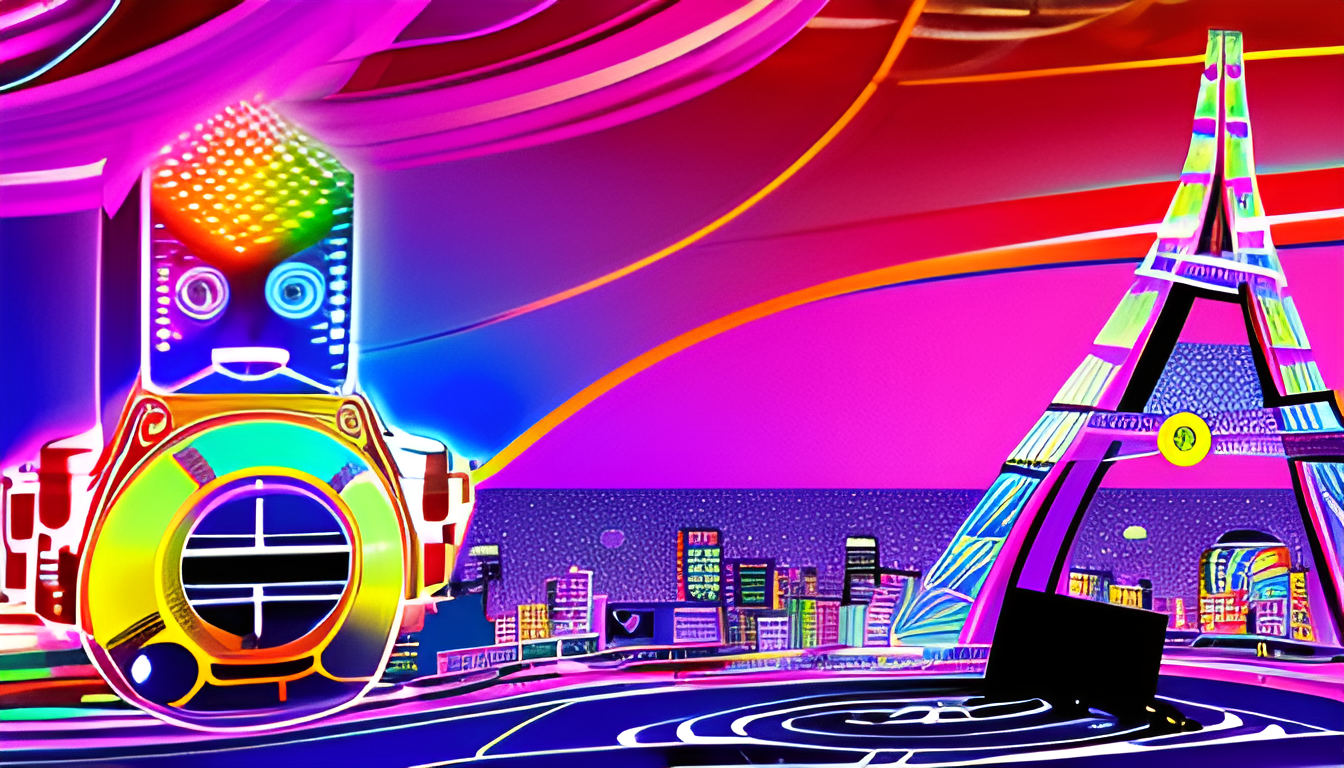
The Future of AI in Pop Culture
As we stand on the brink of a new era, the future of AI in pop culture is nothing short of exhilarating. Imagine a world where your favorite songs are crafted by algorithms, or blockbuster movies are scripted by intelligent machines. This isn’t just a fantasy; it’s a reality that is rapidly unfolding before our eyes. The potential for AI to influence creativity is vast, and it raises some intriguing questions. Will AI become the new Picasso, or will it merely be a tool for human artists?
One of the most exciting prospects is the integration of AI into everyday creative processes. As technology advances, we can expect to see AI not just as a participant but as a collaborator. Musicians, filmmakers, and artists will increasingly rely on AI to push the boundaries of their creativity. For instance, AI could analyze trends and suggest innovations that could lead to the next big hit in music or a groundbreaking film concept. This synergy between human ingenuity and machine learning could lead to a renaissance in the arts.
However, with great power comes great responsibility. The rise of AI in pop culture also brings forth challenges. Issues of authorship and originality are at the forefront of discussions. If an AI creates a hit song, who owns the rights? These questions will require careful consideration as we navigate this new landscape. Moreover, the potential for AI to create content that is overly formulaic or devoid of emotional depth is a valid concern.
In conclusion, the future of AI in pop culture is a double-edged sword. It holds the promise of revolutionizing how we experience art and entertainment, but it also presents challenges that we must address. As creators and consumers, we must embrace the opportunities while remaining vigilant about the implications. The journey ahead is sure to be thrilling, filled with surprises that will keep us on our toes!
Frequently Asked Questions
- How is AI changing the way memes are created?
AI algorithms are now capable of generating memes by analyzing popular trends and humor patterns. They can quickly create content that resonates with audiences, making memes more accessible and diverse than ever before.
- Can AI really help in songwriting?
Absolutely! AI tools can assist musicians by generating lyrics and melodies, providing fresh ideas that enhance creativity. However, this raises interesting questions about authorship and the role of human creativity in music.
- What impact does AI have on music recommendations?
Streaming services use AI to analyze user behavior and preferences, allowing them to suggest personalized playlists. This means listeners get a tailored experience, discovering new music that aligns with their tastes.
- Is AI used in film production?
Yes! AI is increasingly being utilized in various aspects of film production, from scriptwriting to visual effects. It helps streamline processes and enhance storytelling, making films more engaging for viewers.
- What does the future hold for AI in pop culture?
The future looks bright as AI continues to evolve. We can expect even more innovative collaborations between AI and artists, potentially reshaping how we experience music, films, and other forms of entertainment.
